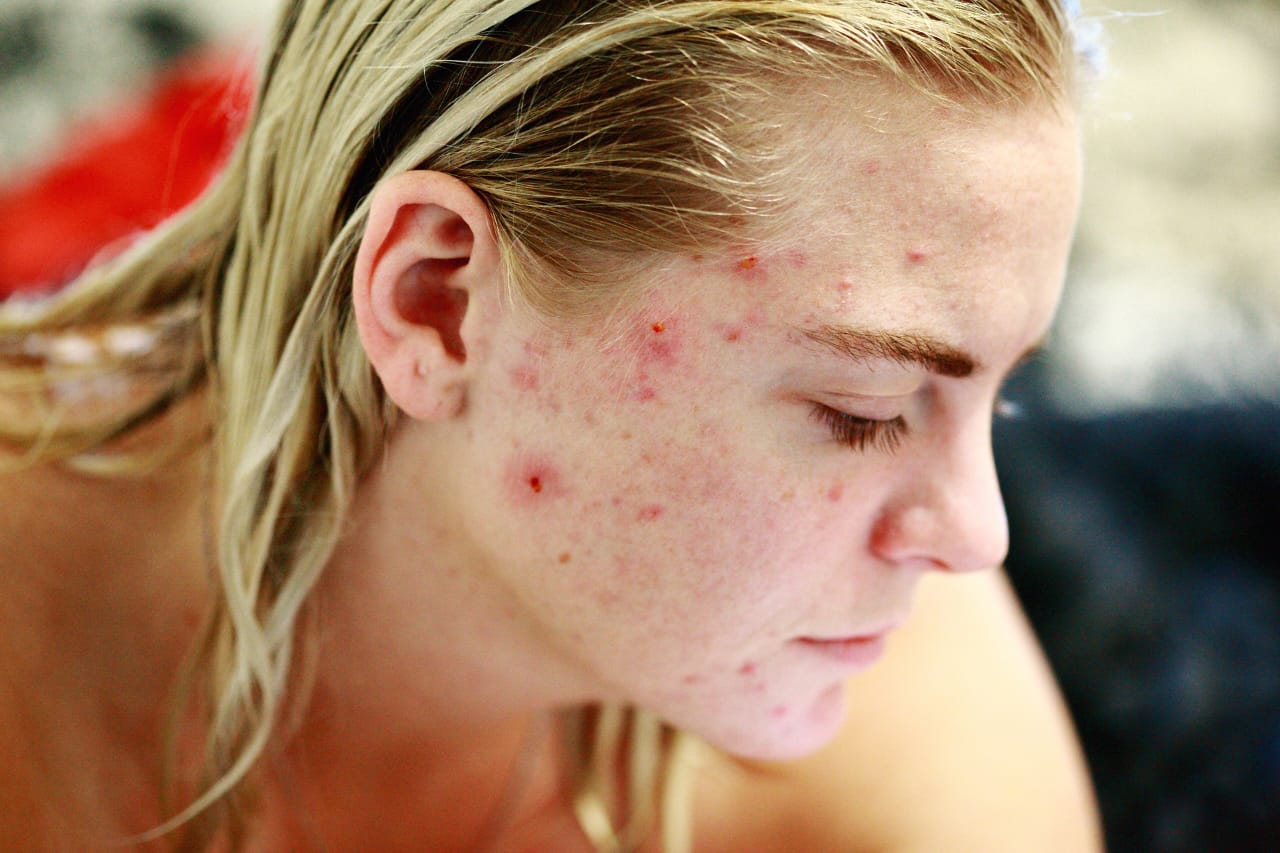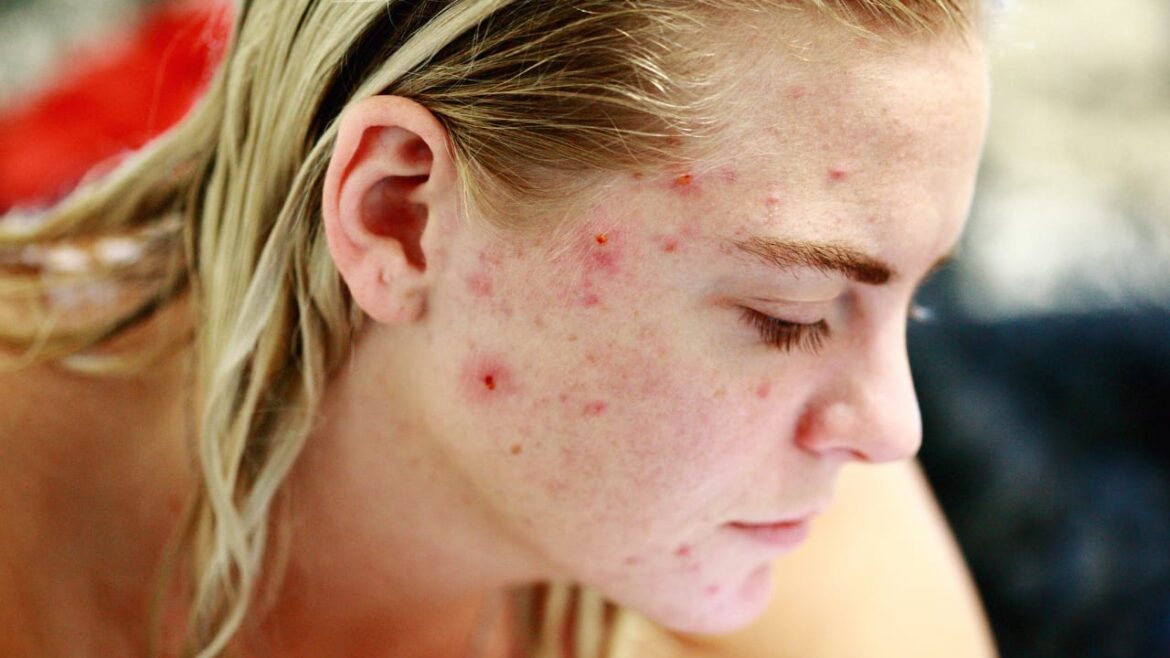10 tips to overcome pimples/Acne
http://icdrc.org/wp-content/uploads/2024/01/WhatsApp-Image-2024-01-25-at-6.49.48-PM-1024x682.jpeg 1024 682 admin admin http://0.gravatar.com/avatar/693ccb227eb6527287caaa4e9eb13c6e?s=96&d=mm&r=g
Have you lost the battle with your pimples? Well, here is the solution. Pimples can reduce the effectiveness of your personality. Getting rid of pimples was not an easy task. But, now you can say “Goodbye” to pimples. You need to follow these tips, and you will observe the absolute difference in before and after results. Remember, these pro tips are not only to overcome pimples but also to improve your overall skin tone. Read the tips carefully and polish your knowledge about skin and skincare routine.
1. Cleanse Your Face Regularly
Your skin contains sweat glands and sebaceous glands, which keep your skin oily. If you do not clean your skin, sebum, sweat, dirt from the environment, and dead cells of your skin, block these gland ducts. As a result, a pimple is formed. Punctually clean your skin; dirt and dead cells will prevent pimples. The use of harsh products for cleansing should be avoided as these products cause skin damage. Moreover, Clean skin allows for better absorption of topical acne medications and other skincare products. This can enhance the effectiveness of treatments aimed at controlling pimples.
What to do
Use a gentle, fragrance-free cleanser to wash your face twice daily (morning and night). Avoid harsh scrubbing, as it can irritate the skin and worsen pimples.
2. Use Non-Comedogenic Products
Comedogenic products are those which cause clogging of pores on the skin. Clogging of pores results in pimples. Non-comedogenic products are generally recommended for individuals dealing with pimples or acne-prone skin. “Non-comedogenic” refers to products that are formulated not to clog pores, which can be particularly beneficial in preventing the development of new pimples and helping to manage existing ones.
What to do
Choose skincare and makeup products labeled as non-comedogenic, meaning they won’t clog pores.
3. Moisturize the Skin
Dry skin can lead to an overproduction of sebum from sebaceous glands. Excessive sebum causes worsening acne. So, Moisturizers prevent the skin from drying. Some acne treatments can be irritating to the skin. Moisturizing can help soothe and calm irritated skin, reducing redness and inflammation associated with pimples. Moisturized skin tends to heal more efficiently. This is important for individuals with pimples, as it can aid in the recovery process and reduce the risk of scarring.
What to do
Considering your skin type(oily or dry skin), it is important to use an adequate moisturizer to keep your skin hydrated.
4. Avoid Touching/Picking at Pimples
Touching or picking at pimples is generally not recommended because it may cause the transfer of bacteria from your hand to the pimple. This leads to further worsening of acne. Picking at or squeezing the pimple results in trauma that disrupts the skin. A scar is formed that persists for a longer period. This trauma to the skin can also lead to delayed healing of acne.
What to do
Diets like refined carbohydrates and foods with a high glycemic index (sugary foods and white bread) contribute to the development of acne. High-glycemic foods can lead to increased insulin levels, which in turn may stimulate the production of sebum (skin oil) and contribute to the clogging of pores. Dairy products, particularly those with high levels of hormones like insulin-like growth factor 1 (IGF-1), are also associated with an increased risk of acne.
5. Use Over-the-Counter Treatments
Over-the-counter medications like salicylic acid and benzoyl peroxide help eliminate pimples. Salicylic acid is a beta-hydroxy acid (BHA) that exfoliates the skin. It works by penetrating the pores and dissolving the dead skin cells and excess oil that can contribute to the formation of pimples. On the other hand, Benzoyl peroxide is an antimicrobial agent that kills the bacteria (Propionibacterium acnes) associated with acne. It also has mild peeling and drying effects.
What to do
Look for products containing ingredients like salicylic acid or benzoyl peroxide. Start with a lower concentration to avoid irritation.
6. Hormonal Balance
Androgens, including hormones like testosterone, play a crucial role in stimulating the sebaceous (on the skin. An increase in androgen levels can lead to an overproduction of sebum. Excess sebum can combine with dead skin cells and contribute to the clogging of hair follicles, leading to the development of pimples. Many women experience hormonal changes throughout their menstrual cycle. In the days leading up to menstruation, there can be an increase in androgens, which may contribute to the development of hormonal acne. This type of acne often presents as deep, tender nodules or cysts. The hormonal changes that occur during puberty, including an increase in androgens, often contribute to the development of acne. This is why acne is commonly associated with adolescence.
What to do
For individuals with hormonal acne, hormonal treatments prescribed by a healthcare professional may be necessary.
7. Avoid Excessive Sun Exposure
Some acne medications, such as topical retinoids and oral antibiotics, can increase sensitivity to sunlight. Exposure to the sun while using these medications may lead to a higher risk of sunburn and skin damage. Prolonged sun exposure can worsen hyperpigmentation, the darkening of skin in areas affected by acne. This is a particular concern for individuals with darker skin tones.
What to do
While sunlight can positively affect acne, excessive exposure can cause skin damage. Use sunscreen to protect your skin.
8. Stay Hydrated
Well-hydrated skin is less likely to produce excess sebum. When the skin is dehydrated, it may compensate by producing more oil, potentially leading to clogged pores and the development of pimples. Proper hydration helps maintain a healthy balance in sebum production. Moreover, Hydrated skin tends to heal more efficiently. This is important for individuals with pimples, as proper healing can reduce the risk of scarring and promote overall skin health.
What to do
Drink plenty of water to keep your skin hydrated, which will help flush out toxins.
9. Manage Stress
Chronic stress can suppress the immune system, making it more challenging for the body to fight off bacteria and inflammation in the skin. This weakened immune response may contribute to the persistence of pimples. Stress triggers the release of stress hormones, such as cortisol, which can increase androgen levels. Elevated androgen levels may stimulate the sebaceous glands to produce more oil (sebum), contributing to develop pimples. Stress triggers the release of stress hormones, such as cortisol, which can increase androgen levels. Elevated androgen levels may stimulate the sebaceous glands to produce more oil (sebum), contributing to the development of pimples.
What to do
High-stress levels can contribute to acne. Practice stress-reducing activities such as meditation, deep sleep, yoga, or deep breathing.
10. Balanced Diet
Maintaining a balanced diet is crucial for overall health, including skin health. While diet alone may not be the sole factor influencing the development of pimples, it can play a role in skin conditions, including acne. A balanced diet provides essential nutrients that are important for overall skin health. Nutrients such as vitamins A, C, and E, zinc, and omega-3 fatty acids play roles in skin maintenance, repair, and immune function. Adequate intake of these nutrients may contribute to healthier skin and help manage acne.
What to do
Eat a well-balanced diet rich in fruits, vegetables, whole grains, and lean proteins. Avoid excessive consumption of sugary and greasy foods.
Bottom Line
Remember, it’s important to be patient, as clearing up pimples takes time. If you’re unsure which products or treatments suit your skin, it’s always a good idea to consult a dermatologist for personalized advice. Maintaining proper hygiene can help the acne heal quicker. If you are not suffering from acne, then make sure you follow this routine as it is because these tips will improve your skin’s health and help you prevent acne.




